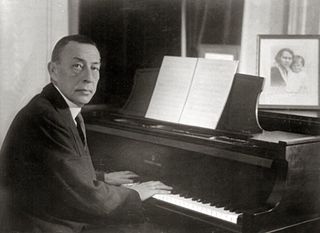
A pianist is a musician who plays the piano. A pianist's repertoire may include music from a diverse variety of styles, such as traditional classical music, jazz, blues, and popular music, including rock and roll. Most pianists can, to an extent, easily play other keyboard instruments such as the synthesizer, harpsichord, celesta, and the organ.

Robert Schumann was a German composer, pianist, and music critic of the early Romantic era. He composed in all the main musical genres of the time, writing for solo piano, voice and piano, chamber groups, orchestra, choir and the opera. His works typify the spirit of the Romantic era in German music.

Clara Josephine Schumann was a German pianist, composer, and piano teacher. Regarded as one of the most distinguished pianists of the Romantic era, she exerted her influence over the course of a 61-year concert career, changing the format and repertoire of the piano recital by lessening the importance of purely virtuosic works. She also composed solo piano pieces, a piano concerto, chamber music, choral pieces, and songs.
This is a list of music-related events in 1819.
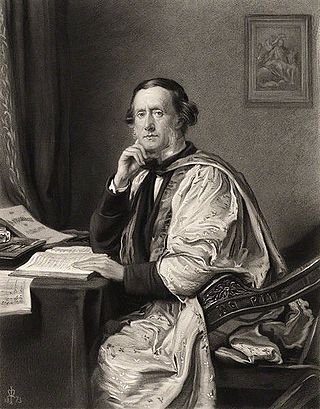
Sir William Sterndale Bennett was an English composer, pianist, conductor and music educator. At the age of ten Bennett was admitted to the London Royal Academy of Music (RAM), where he remained for ten years. By the age of twenty, he had begun to make a reputation as a concert pianist, and his compositions received high praise. Among those impressed by Bennett was the German composer Felix Mendelssohn, who invited him to Leipzig. There Bennett became friendly with Robert Schumann, who shared Mendelssohn's admiration for his compositions. Bennett spent three winters composing and performing in Leipzig.

The Piano Quintet in E-flat major, Op. 44, by Robert Schumann was composed in 1842 and received its first public performance the following year. Noted for its "extroverted, exuberant" character, Schumann's piano quintet is considered one of his finest compositions and a major work of nineteenth-century chamber music. Composed for piano and string quartet, the work revolutionized the instrumentation and musical character of the piano quintet and established it as a quintessentially Romantic genre.

Niels Wilhelm Gade was a Danish composer, conductor, violinist, organist and teacher. Together with Johan Peter Emilius Hartmann, he was the leading Danish musician of his day, in the period known as the Danish Golden Age.
The "War of the Romantics" is a term used by some music historians to describe the schism among prominent musicians in the second half of the 19th century. Musical structure, the limits of chromatic harmony, and program music versus absolute music were the principal areas of contention. The opposing parties crystallized during the 1850s. The most prominent members of the conservative circle were Johannes Brahms, Joseph Joachim, Clara Schumann, and the Leipzig Conservatoire, which had been founded by Felix Mendelssohn. Their opponents, the radical progressives mainly from Weimar, were represented by Franz Liszt and the members of the so-called New German School, and by Richard Wagner. The controversy was German and Central European in origin; musicians from France, Italy, and Russia were only marginally involved.
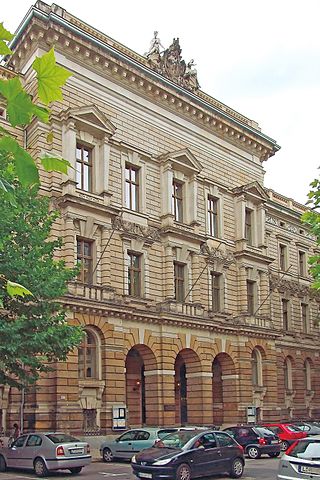
The University of Music and Theatre "Felix Mendelssohn Bartholdy" Leipzig is a public university in Leipzig, Saxony, Germany. Founded in 1843 by Felix Mendelssohn as the Conservatorium der Musik, it is the oldest university school of music in Germany.
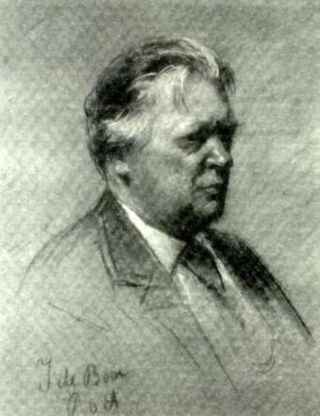
Fürchtegott Theodor Kirchner was a German composer and pianist of the Romantic era.
Albert Ferber was a Swiss pianist who had an international performing career that spanned four decades and took him across the world.
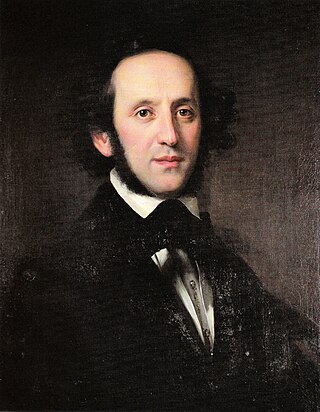
Felix Mendelssohn's Piano Trio No. 1 in D minor, Op. 49, was completed on 23 September 1839 and published the following year. The work is scored for a standard piano trio consisting of violin, cello and piano. It is one of Mendelssohn's most popular chamber works and is recognized as one of his greatest along with his Octet, Op. 20. During the initial composition of the work, Mendelssohn took the advice of fellow composer Ferdinand Hiller to revise the piano part. Hiller wrote, "with his usual conscientious earnestness when once he had made up his mind, he undertook the length and rewrite the whole pianoforte part."
Henriette Gaertner is a German pianist.
The Piano Sonata No. 2 in G minor, Op. 22 was composed by Robert Schumann from 1830 to 1834.
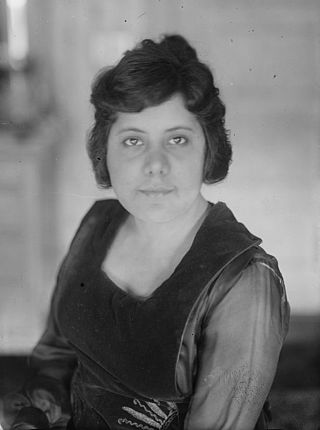
Guiomar Novaes was a Brazilian pianist known for individuality of tone and phrasing, singing line, and a subtle and nuanced approach to her interpretations.

Clotilde Kleeberg was a French pianist. She was also known as Clotilde Kleeberg-Samuel.
Kristin Merscher is a German classical pianist and professor at the Hochschule für Musik Saar in Saarbrücken, Germany.
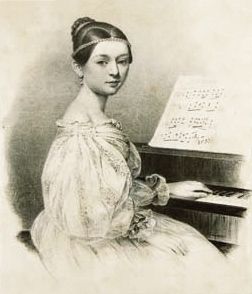
The Piano Concerto in A minor, Op. 7, was composed by Clara Wieck, better known as Clara Schumann after her later marriage to Robert Schumann. She completed her only finished piano concerto in 1835, and played it first that year with the Leipzig Gewandhaus Orchestra, conducted by Felix Mendelssohn.
The Gewandhaus Quartet is a string quartet based in Leipzig. It was founded in 1808 by members of the Gewandhaus Orchester, as one of the first professional quartets in the world. In its more than 200-year history, they played many world premieres.
Eleonore Henriette Magdalena Grabau-Bünau, also Henriette Grabau or Henriette Bünau, was a German operatic alto and mezzo-soprano. For twelve years she was the main singer at the Leipzig Gewandhaus and from 1843 to 1849 she was the first teacher at the Leipzig Conservatory.











